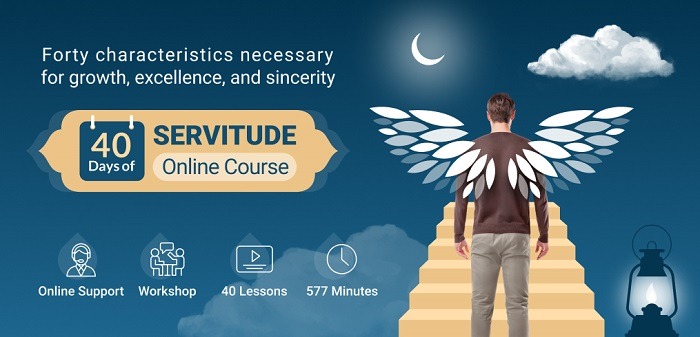7 Golden Keys to Success in Nahj al-Balagha
Contents
1. Organization and Planning
His multidimensional life, multiple responsibilities, studies, earning a living, managing household affairs, and social commitments… had overwhelmed his. Whenever he focused on one of these matters, he fell behind on another. was tired and distressed, He knew he couldn’t continue like this. He had to find a way to change this chaotic and busy lifestyle. He took a moment to reflect and thought about which of these he could eliminate to better manage the rest. However, he couldn’t distinguish his priorities. It seemed that all aspects of his life were intertwined. He couldn’t afford to neglect any of them; removing one would lead to the collapse of the others. He decided to consult a counselor for advice on solving his problem. On the way, he listened to the car radio. A program on organization in life was being broadcast. The expert in the program quoted Imam Ali (peace be upon him) to support his advice: “A believer’s time is divided into three hours: an hour in which he confides in his Lord, an hour in which he takes care of his livelihood, and an hour in which he is free to enjoy permissible and good pleasures.” [1]
He hit the brakes, pulled over, and said to himself: The best counselor has already given me the answer. I need to plan my life based on this method so that I can attend to all my tasks.
2. Forgiveness
His nerves were frayed by people who disturbed his peace. He had been wrongly judged, and he was discovering one by one the true faces of those who claimed to be his friends. One by one, he sent them messages, declaring that he would not forgive them. He brought his anger home with his. That night, he was harsh with his husband and young children, hurting them all. Morning came, and he had to go to work with the same vengeful spirit. He decided not to speak to anyone and to respond only to work-related matters. He was so angry that he wasn’t even sure if he could return his colleagues’ greetings.
When he arrived at work, he found all his colleagues gathered in his office, offering apologies with a box of sweets. He sat at his desk in bitter silence, ignoring their remorseful words and focusing on his work. As noon approached, he remembered they were supposed to attend a party that evening. He called home, but his husband, still upset, coldly replied that he wouldn’t be going with his. He knew it was his fault and that his husband was right, so he called again to apologize. After a pause, his husband said, “I forgive you because I want to act on the lesson, I learned from Nahj al-Balagha today.”
He asked in surprise, “What lesson?”
His husband replied, “The lesson of ‘Forgive, and you will be forgiven.’[2]“
He said goodbye to his husband and stood up to bring a box of sweets to his colleagues.
3. Enjoining Good
He was standing beside the mourning palm for Imam Hussein (peace be upon him), listening to the preacher’s words. Just then, a man, out of breath, entered the circle of the crowd, pleading, “I have a sick person. Please move the palm so I can take a shortcut and get him to the hospital faster.” The noise was so loud that many didn’t understand what he was saying. Meanwhile, the preaches was saying, “Imam Hussein (peace be upon him) said that I rose for the establishment of good…”. The man’s distress caught his attention. He could only step aside to make way for the man’s car, but that wasn’t enough. So, he quickly went forward, took the microphone from the preaches, and said, “To save a life, let’s all move the palm together so the car can take the shortcut to the hospital in time.” Minutes later, everyone helped, and they cleared the way for the man’s car.
The preacher resumed his speech about the importance of the Ashura struggle in keeping Allah’s religion alive. Meanwhile, his eyes fell on a sign in the Hussainiya that read: “Imam Ali (peace be upon him) says: ‘All good deeds and striving in the way of Allah are like a drop in the ocean compared to enjoining good and forbidding evil.’[3]“
4. High-mindedness and Self-Sufficiency
The honey-colored leather coat was exactly the one he had been searching for in his city for three months, and now he found it at the leather exhibition. But he needed more money to buy it. His father had just paid his dormitory fees, and he couldn’t ask him for more money. He had to ask his friend for help to buy the coat—his friend who was financially well-off and could easily buy the coat for him. They had gone to the exhibition together, to the same leather coat booth. His friend admired his taste and decided to buy one of those coats for himself as well.
He took the coat from the seller and went to the fitting room; in front of the mirror, his eyes fell on a note on the wall: “Be generous and kind to whoever you wish, and you will become their master; seek self-sufficiency from whoever you wish, and you will be like them; make yourself dependent on someone and seek help from them, and you will become their captive.”[4]
He read the hadith several times. The coat in his hands lost its value. No longer wanted to buy it, he didn’t want to remember that every time he wore it, his Imam had warned his to maintain his high-mindedness. He came out of the fitting room, handed the coat back to the seller, and said, “I’ll buy it at your next season’s exhibition.”
5. Following the Path of Leadership
He was flipping through the newspapers. For some time, he had been more confused than ever. Couldn’t reach any solid conclusions, He had spoken to his teacher about it several times and each time had heard the same advice: You need to look at matters with insight to distinguish right from wrong.
He still didn’t know where to find insight. To him, insight had become an ideal, an unattainable concept. The political factions in the newspapers had left him bewildered, and he was unable to determine who was telling the truth and who was not. How could two completely contradictory viewpoints both be correct? So, which one was the truth? Which path would lead him to his destination?
He was so confused that he closed the newspapers and went to the university mosque. He wanted to find his lost answer in solitude with Allah, reached for the Quran but accidentally picked up the Nahj al-Balagha. Then He sat in a corner and opened it. The Imam (peace be upon him) spoke to him directly: “Look at the Ahl al-Bayt of your Prophet, and follow the path they tread; follow in their footsteps, for they will never lead you astray nor bring you back to ruin.”[5]
He found his answer in its fullest form. Leadership (Wilayah) is the straight path that will save him from all this confusion.
6. Learning from Events
He stood on the bridge in front of the college, watching people from above. Everyone was on the move, but with different thoughts and minds. The professor of religious studies had said that all humans are created to achieve perfection, and each takes a different path to this destination. He was pondering the professor’s words and whether the variety of life stories and experiences would be useful to others. He wondered if learning from the experiences of others could serve as a shortcut for the rest or if everyone has their own path and life to live. What help could paying attention to the experiences of others provide to someone who has no common ground with them? This question had occupied his thoughts for a long time. At that moment, he received a text message from his friend: “Imam Ali (peace be upon him) says: ‘The insightful person is one who hears and thinks, sees and reflects, and benefits from lessons learned; then, they walk on clear paths, avoiding roads that lead to destruction, confusion, and deceptive doubts.’[6]“
7. Patience and Perseverance
His head spun. The sky suddenly came crashing down on him. The sweets being passed around in class were for the wedding of the very girl he had chosen for himself months ago and was waiting for the right moment to propose to. But now all his sweet dreams were shattered. He buried his head in his hands and prayed that no one had noticed anything so that he could get back to his dorm and cry in the shower for a while to calm down. But even that wouldn’t help, as he couldn’t escape from the one-sided affection that had trapped his.
He thought that after this emotional blow, he would never be able to think about marriage with anyone else. He was disgusted with himself. Why had he been so shy, letting things get to this point? again Why had he never done anything to get his attention? Why hadn’t he expressed his feelings? All these questions had only one answer: his modesty, the modesty that had resulted in a broken heart. He had his head down, engrossed in his ethics notes when suddenly his eyes caught a phrase from his Imam: “A believer must fight against their desires, deny false hopes, and make perseverance the steadfast steed that carries them to salvation. This perseverance and steadfastness are what will save them from the clutches of their whims.[7]“
He swallowed the tears he had been hiding and tried to engrave his Imam’s message into his soul.
Here is the translation of the provided sources:
[1] Nahj al-Balagha, Wisdom 382
[2] Ghurar al-Hikam, vol. 2, p. 172
[3] Nahj al-Balagha, Wisdom 374
[4] Bihar al-Anwar, vol. 70, p. 13
[5] Nahj al-Balagha, Sermon 97
[6] Same source, Sermon 153
[7] Same source, Sermon 76


